
当前展览“重新聚焦媒介:东亚录像艺术的兴起” 共计展出25件作品。“作品介绍”系列将在展期内,以导览路线为序依次为大家推送每一件作品的介绍。展览首次汇集来自日本、韩国和中国,开创了录像艺术实验之先河的重量级艺术家,旨在重新审视艺术家在东亚录像艺术兴起之时对于这一媒介的处理方式,并以期为跨国性当代艺术媒介的录像艺术在全球范围内的历史梳理做出贡献。
山本圭吾
b.1936
No.15
脚 No.3
Foot No.3
1977
单通道录像(阴极射线管显示器)
6 分 33 秒(黑白,无声),循环播放
Single-channel video (CRT monitor)
6’33’’ (black and white, silent), looping
作品由艺术家和阿姆斯特丹LIMA提供
Courtesy of the artist and LIMA Amsterdam
No.16
手 No.2
Hand No.2
1976
单通道录像(阴极射线管显示器)
8 分 21 秒(黑白,无声),循环播放
Single-channel video (CRT monitor)
8’21’’ (black and white, silent), looping
作品由艺术家提供
Courtesy of the artist
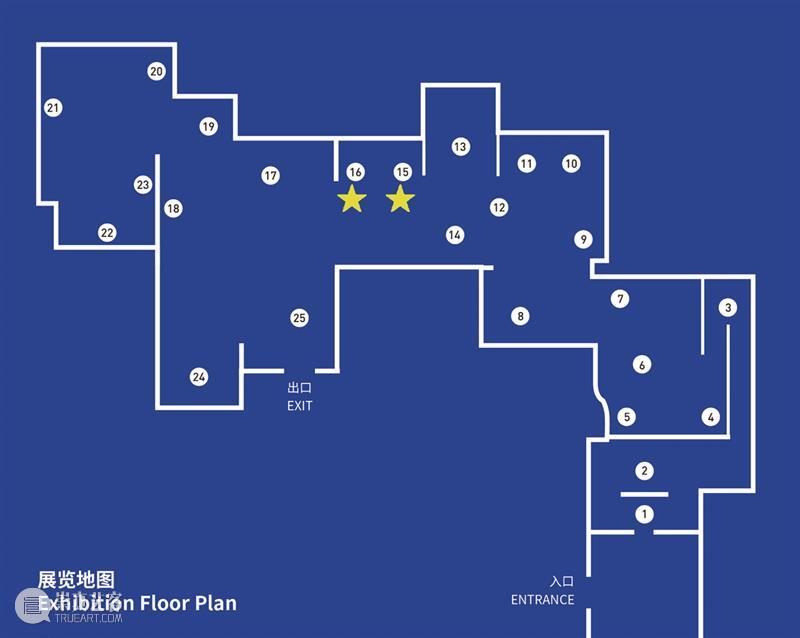
星标为《脚 No.3》(1977)和《手 No.2》(1976)在本次展览现场所处位置
The stars refer to the location of Foot No.3 (1977) and Hand No.2 (1976) in this exhibition.
山本圭吾在作品《手 No.2》(Hand No.2,1976)和《脚 No.3》(Foot No.3,1977)中,通过录像和闭路电视监视屏的即时回放功能,探讨了监视屏的物理性和身体的延伸。这些作品记录了孤立的身体部位(手和脚)与作为影像框架的监视屏之间的互动。手和监视屏的第一次互动被拍摄下来,然后在监视屏上进行播放,再对手和之前的影像之间的互动进行再次拍摄。在《手 No.2》中,我们看到同一只手被记录和再记录,使得手和手臂出现在相互分隔、又相互关联的表现场域。同样的原理也被运用在《脚 No.3》中,即在一台监视屏上表现一台监视屏中所表现的监视屏上的内容。层层叠加的影像将监视屏内部的身体延伸到我们面前基座上的监视屏之外的界域。在展览中,观众可以直接触碰监视屏,从而直接反向连接,成为艺术品的一部分;正是因为这种可能性,监视屏和它所占据的空间才成为了“现场”。(文/金曼)
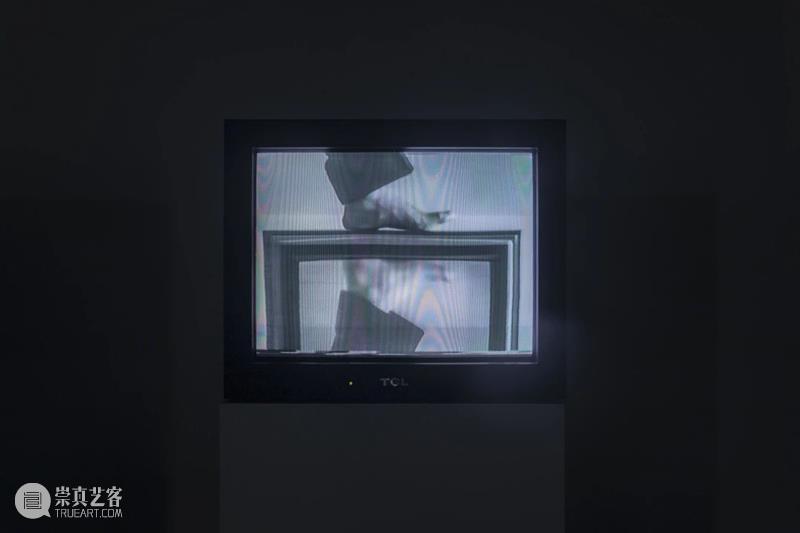
山本圭吾,《脚No.3》,1977,单通道录像。“重新聚焦媒介:东亚录像艺术的兴起”展览现场,2020-2021,OCAT上海馆
Keigo Yamamoto, Foot No.3, 1977, single-channel video. Installation view of Refocusing on the Medium: The Rise of East Asia Video Art, 2020-2021, OCAT Shanghai
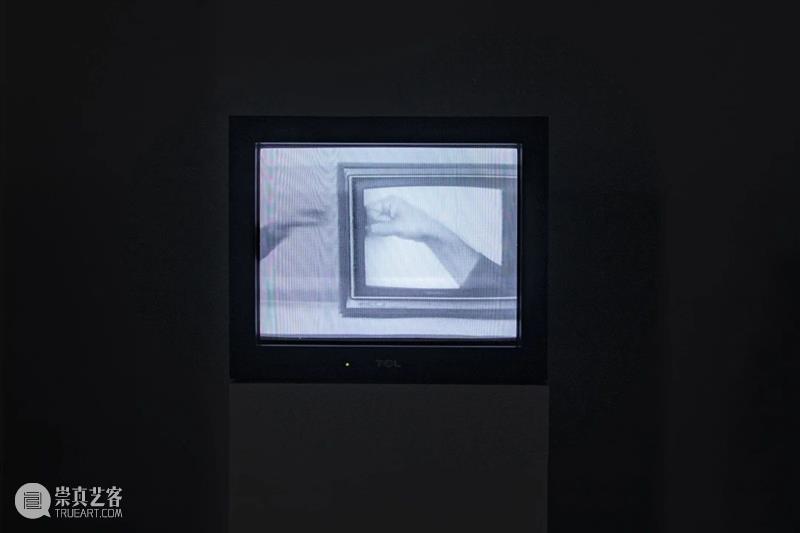
山本圭吾,《手 No.2》,1976,单通道录像。“重新聚焦媒介:东亚录像艺术的兴起”展览现场,2020-2021,OCAT上海馆
Keigo Yamamoto, Hand No.2, 1976, single-channel video. Installation view of Refocusing on the Medium: The Rise of East Asia Video Art, 2020-2021, OCAT Shanghai
Keigo Yamamoto contemplated the physicality of the monitor and the extension of the body through the immediate play back capability of video and CCTV monitor in his works Hand No.2 (1976) and Foot No.3 (1977). The works record interaction between the isolated body part – the hand or foot - with the monitor as the framing device of the video. The first interaction between hand and monitor is recorded, then played on the monitor and filmed again with a response to the earlier recording. What we see in Hand No. 2 is the same hand recorded and re-recorded locating the hand and forearm in separate but connected realms of representation. The same principle is explored in Foot No.3. A representation of a representation of a monitor within a representation of a monitor within a monitor. Layers of representation extend the body from the inner image of the monitor to the outer limits of the existing monitor on the plinth before us. Viewing this work in the exhibition it is possible to physically touch the monitor and in turn directly connect to become part of the art work and it is with this possibility the monitor and the space it occupies is ‘live’. (Text / Kim Machan)
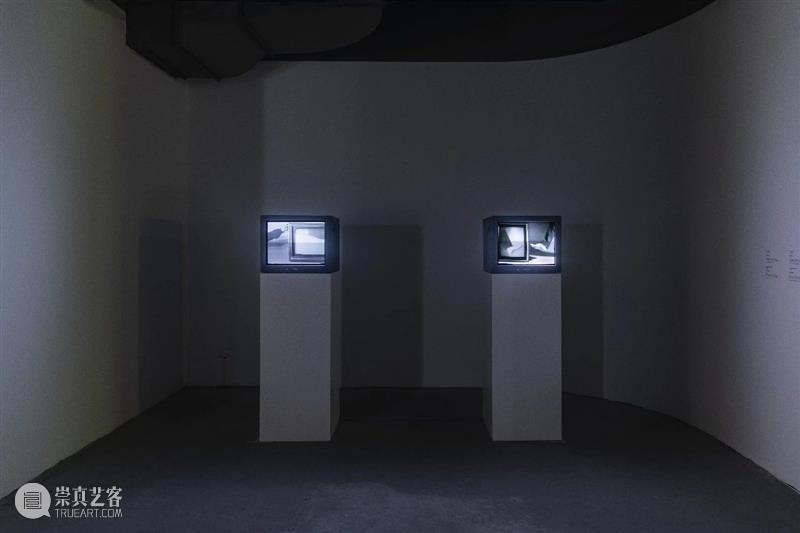
左:山本圭吾,《手 No.2》,1976,单通道录像;右:山本圭吾,《脚No.3》,1977,单通道录像。“重新聚焦媒介:东亚录像艺术的兴起”展览现场,2020-2021,OCAT上海馆
L: Keigo Yamamoto, Hand No.2, 1976, single-channel video; R: Keigo Yamamoto, Foot No.3, 1977, single-channel video. Installation view of Refocusing on the Medium: The Rise of East Asia Video Art, 2020-2021, OCAT Shanghai
图片版权 ©OCAT上海馆
Image copyright ©OCAT Shanghai
艺术家简介
About the Artist
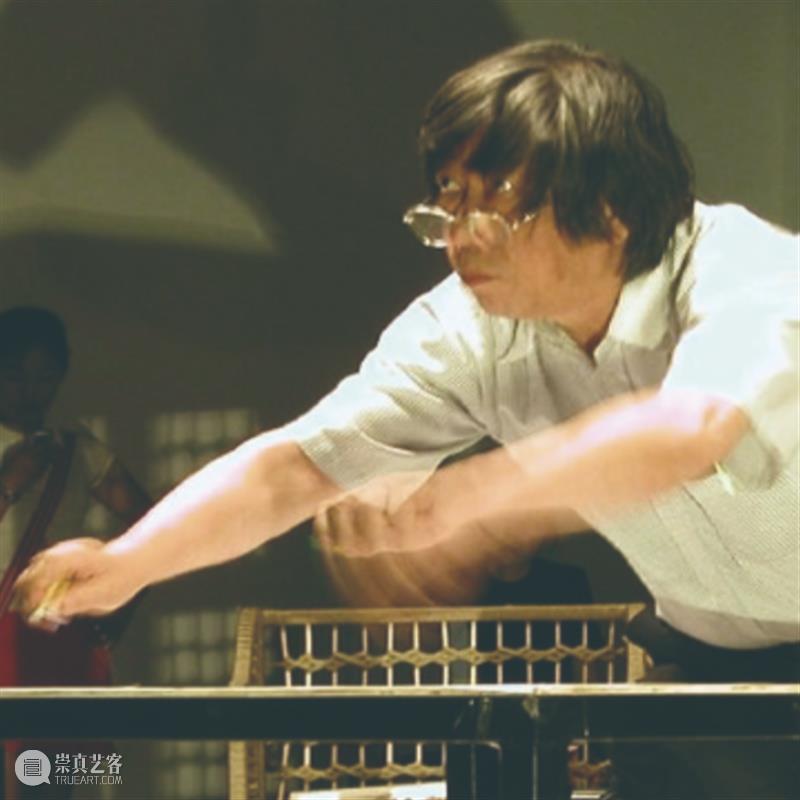
图片由艺术家及日本文化厅媒体艺术祭档案库提供
©Keigo Yamamoto and
Japan Media Arts Festival Archive
山本圭吾是一位日本媒体艺术家,1936年生于日本福井,自1968年开始创作录像艺术。作为录像艺术家团体“视频广场”(Video Hiroba)的创始成员之一,山本圭吾对日本最早一批录像艺术实验做出了重大贡献。他是上世纪70年代“网络艺术”运动(network art)的领军人物之一,这一新的艺术形式通过将计算机、声音和电讯融合起来,带来了不同文化之间的相遇。基于在录像艺术方面的创作,山本圭吾于1985年创立了福井国际录像双年展,该展一直延续到1999年。山本圭吾的作品在许多重要的国际展览中展出;他作为一名教育工作者,培养了一批年轻的艺术家。自1988年起,他开始担任武藏野美术大学教授,并在2000年成为京都精华大学教授,兼任该校电影与媒体研究中心主任。2014年,日本媒体艺术节将终身成就奖授予山本圭吾,以表彰他对日本媒体艺术和教育的贡献。
Born in Fukui, Japan in 1936, Keigo Yamamoto is a Japanese media artist who started producing video art from 1968. As an original member of the video artists’ collective Video Hiroba, he made significant contributions to the first wave of experimentation with video in Japan. He was a key figure leading the ‘network art’ movement in the 1970s, a new art that brought about encounters between different cultures in the fusion of computers, sound and telecommunication. His work in video art led him to establish the Fukui International Video Biennale in 1985 that continued until 1999. Yamamoto regularly exhibited in many significant international exhibitions and as an educator has nurtured younger generations of artists. From 1988, he was a professor at Musashino Art University, and later became a professor and the director of the Film and Media Research Center, at Kyoto Seika University in 2000. In 2014 he was awarded the Japan Media Arts Festival Achievement Award for his lifetime contribution to media arts and education in Japan.

当前展览
重新聚焦媒介:东亚录像艺术的兴起
展期:2020年12月27日-2021年3月21日
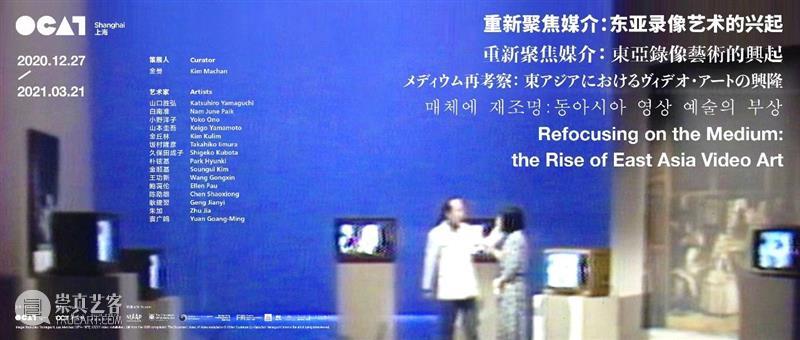
C空间计划 | 廖斐 | 这一切是随机发生的吗?
展期:2021年1月23日-3月28日
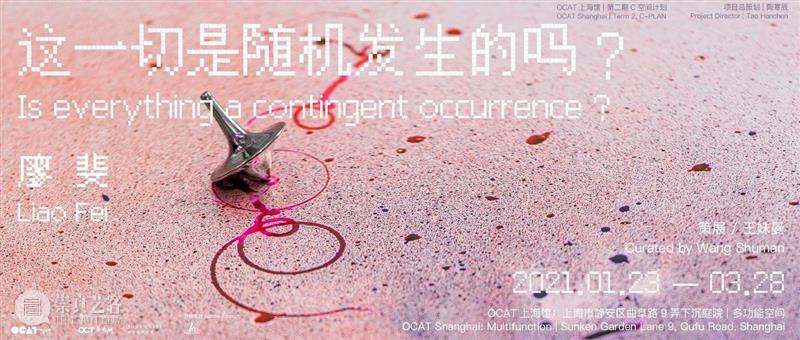
征稿启事
扩频Amplifier:OCAT上海馆媒体艺术专号
截稿日期:2021年3月14日
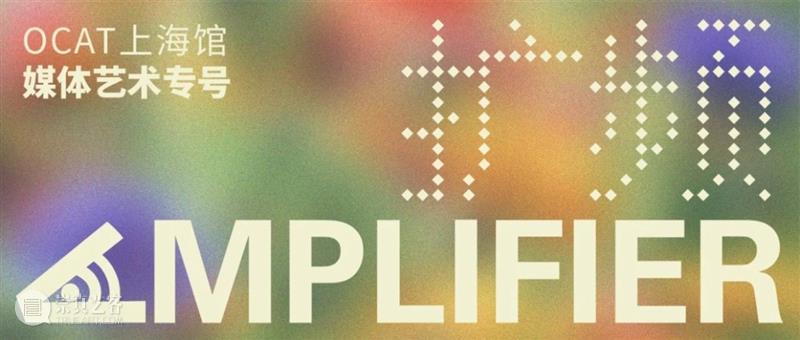
关于OCAT上海馆
参观时间 | Admission Hour
10:00-18:00 周二至周日(周一闭馆)
最后入场时间:17:30
10:00-18:00 from Tuesday to Sunday (Closed on Mondays)
Last Entry 17:30
联系我们 | Contact us
Tel: 021-66085180
Email: ocatshanghai@ocat.org.cn
Weibo: @OCAT上海馆
Instagram: @ocat__shanghai
地址 | Address:
上海市静安区曲阜路9弄下沉庭院,负一层(轨道交通8号线、12号线曲阜路站)
-1F Sunken Garden, Lane 9, Qufu Road, Shanghai (MTR Line 8 & 12 Qufu Road Station)
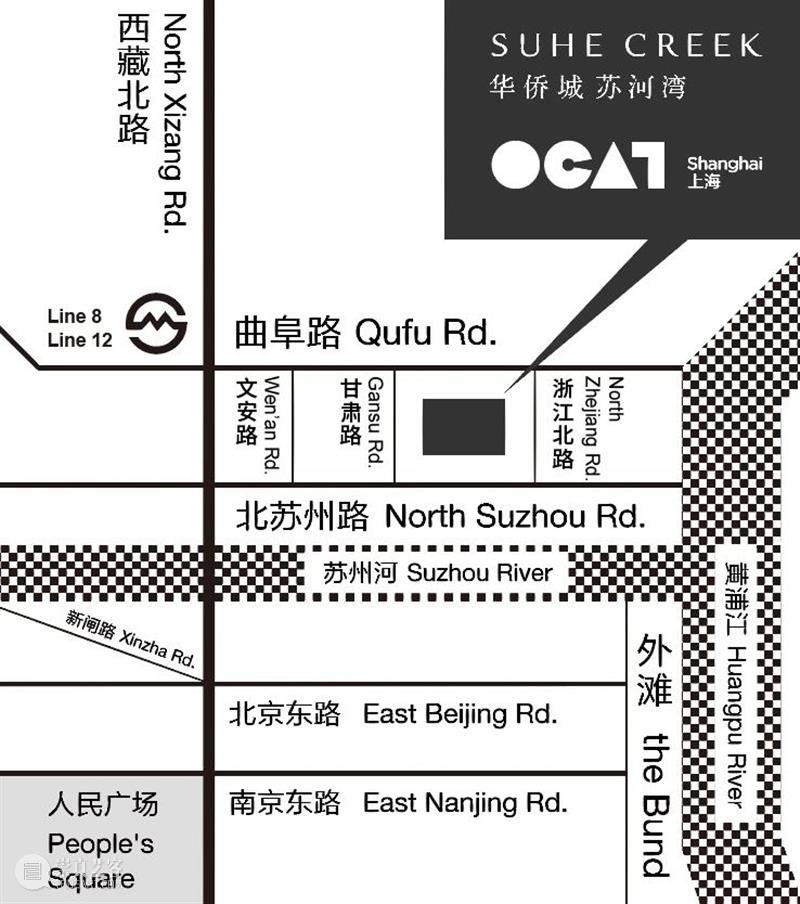


已展示全部
更多功能等你开启...





 分享
分享